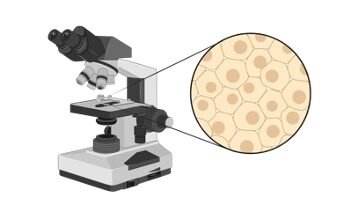Mycology Definition
The study of fungi is called mycology. In this branch, the relationships between fungi and other organisms and their unique biochemistry are studied. Fungi belong to a separate kingdom, most of them are eukaryotic organisms.
Earlier, it was assumed that fungi are an offshoot of the plant kingdom but with the help of DNA and biochemical analysis, it has been revealed that they belong to a separate lineage of eukaryotes. Their cell wall is the main distinguishing feature between fungi and plants.
The fungal cell wall is made of chitin and glucans. Fungi are significantly different from both plant and animal kingdoms thus mycology is considered a necessary branch of biology.
History of Mycology
Until the 1800s, fungi were assumed as a different kind of plant. Some fungal species such as Mushrooms (their reproductive bodies) are edible and also used for medicinal uses, for their hallucinogenic effects since antiquity.
Fungi were considered by many Greek philosophers and naturalists but all relate them with plants. After the invention of the microscope in the 1800s, the inner workings of fungi began to examine.
In 1836, M.J. Berkeley coined the term mycology, when fungi were recognized as their separate kingdom. However, the differences were recognized after the advent of modern biochemistry and DNA analysis. The fungal cell wall is made of chitin, instead of the cellulose cell wall found in plants.
Unlike most plants and animals, the fungal cell is multinucleated and contains special pores, which allows the cytoplasm and nucleus to flow freely between various chambers in the fungal chambers. After observation, it was revealed by scientists that most fungi spend their time as a mold or ooze.
The multicellular fungi obtain nutrition from decaying organic matter. According to scientists, fungi are also responsible for fermentation, and crop diseases. The field of mycology exploded with various discoveries.
In agricultural mycology, we focus on controlling and utilizing fungi in commercial crops. The adverse effects of fungi on other organisms were studied by toxicologists. The useful compounds of mushrooms are extracted by pharmaceutical companies. Like the field itself, the careers in this field are also diverse and complex.
Careers in Mycology
In the agricultural industry, mycology was first used and emerged as an important science and it remains until today. Various plant diseases which affect crops were studied by a phytopathologist.
For many crops, fungi are the major pests, which also show some beneficial effects by serving as a symbiont as allowing the plant to extract nutrients and water from the soil. The beneficial and harmful are distinguished with the help of mycology and it is also needed to treat crops and other infections caused by fungi.
Several fungi can kill targeted insects thus they are used as pesticides that are more natural than synthetic pesticides. After the origin of mycology in agriculture, it expanded well. After knowing the diversity of this kingdom, the roles of fungi were understood properly in society.
For instance, fungi were used in the production of cheese. The organism was classified and described in mycology, which leads to better and efficient production of cheese and other dairy products.
The other form of fungi is yeast, which is used in fermentation and the process of yeast fermentation is science itself. A person can get a bachelor’s degree in fermentation science and work in the brewing and distilling industries.
Yeast is also used in bread making and to maintain the cultures to produce enough yeast for the production, microbiologists are required.
Mycotoxicology is another specialized field of mycology in which the toxic effects of mushrooms were studied. Typically, to become a mycotoxicologist, a person needs a doctorate in biochemistry or organic chemistry or a medical doctorate with concentrations in mycology and toxins.
A variety of chemicals with toxic effects on all kinds of organisms were produced by fungi. Since the earliest hunter-gatherers, humans have eaten mushrooms, but some mushrooms are highly toxic while some species of mushrooms are beneficial and also used as medicine.
Many mycotoxicologists try to develop new drugs from these compounds and work for pharmaceutical companies. Still, more specializations are found in mycology and it is still evolving. With continuous, the kingdom is becoming more large and complex.
Researchers are focusing on special areas and interesting applications for certain fungi. For instance, radiotrophic fungi could alleviate radioactive wastes because it appears to grow in the presence of radioactivity, and fungi can convert complex organic substances into simpler molecules such as CO2.
Many of these applications have important commercial values and institutes need researchers to explore the aspects of mycology. Finally, the scientist studying the historical uses of fungi is called an ethnomycologist.
Mushroom is used in various cultures as food, medicines, hallucinogens, etc. these uses were studied by an ethnomycologist and then inform the front-line researchers about known effects of certain fungi.
Ethnomycologists also provide a critical function by sorting the helpful information which is already gathered by past cultures and societies. As these professions are pushing the boundaries of knowledge and filling the missing gap, the field of mycology is still expanding.
Mycology Citations
Mycologist: What do you do?
Welcome to Mycology Online
Share












